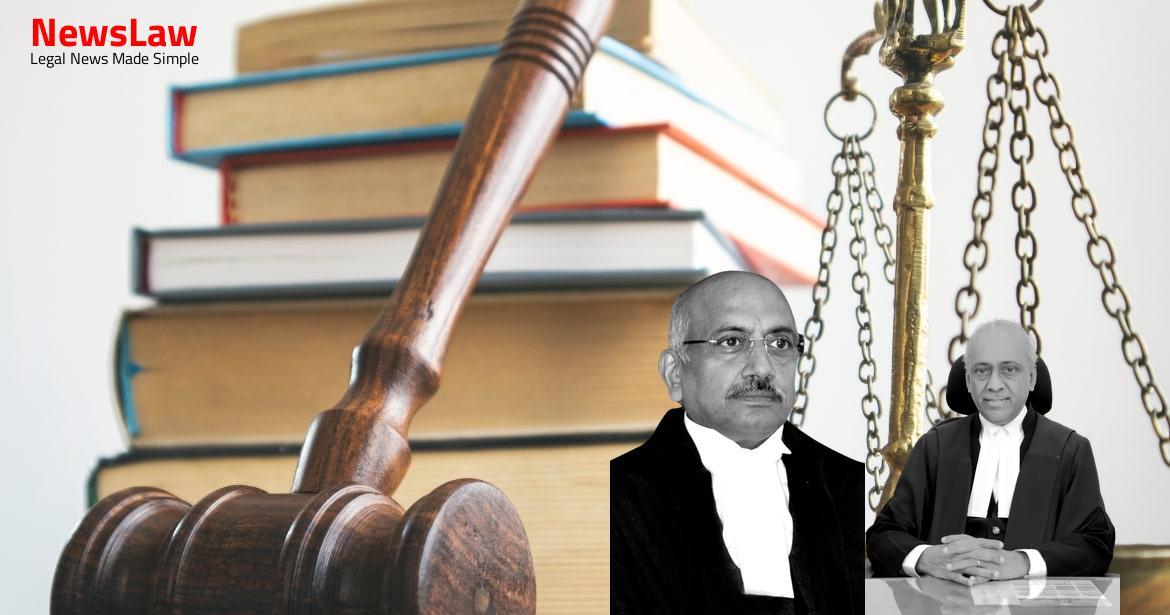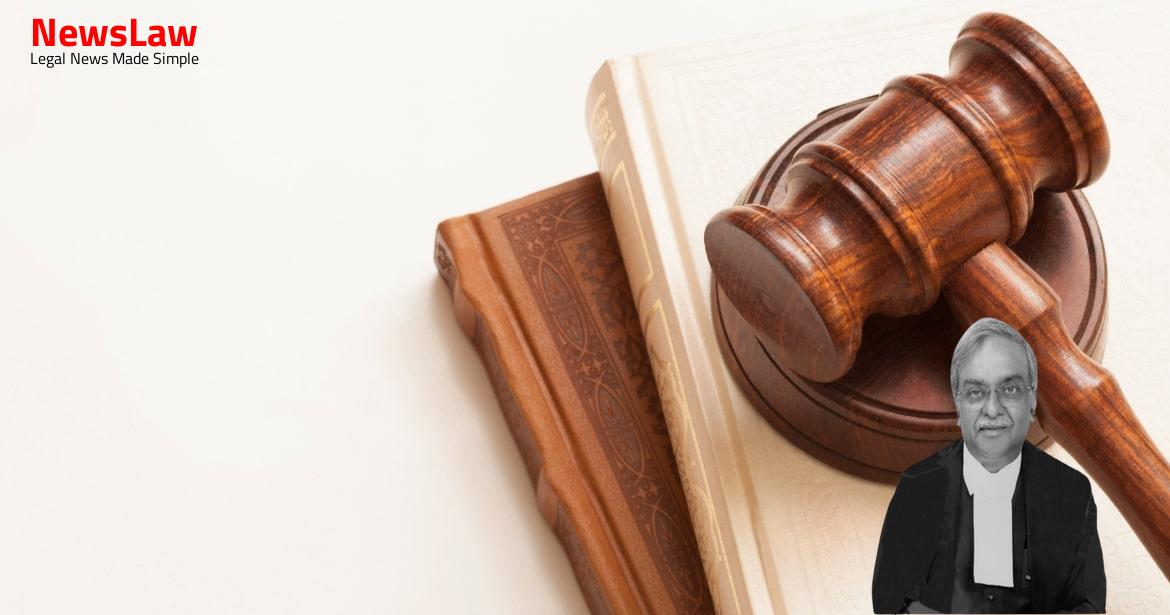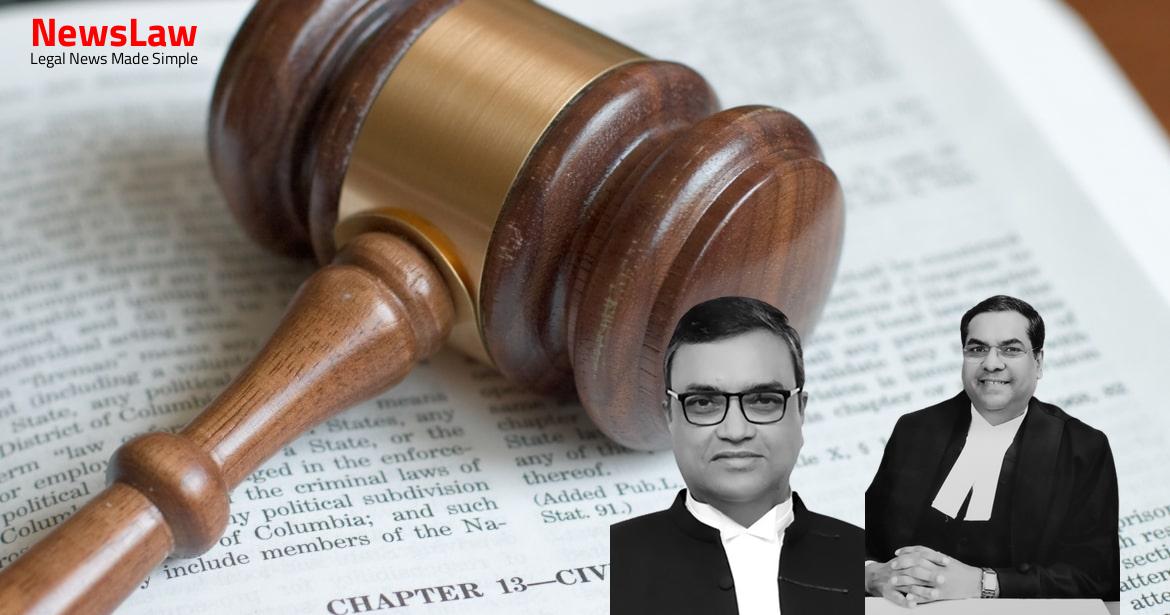In a significant legal case, a court analyzed the interpretation of a Power of Attorney in a property dispute, setting crucial precedents for property transactions. The court’s detailed legal analysis sheds light on the requirements for valid property transfers and the limitations on agents’ powers under a Power of Attorney document. This case serves as a reminder of the importance of clear authorization in legal documents, especially in real estate transactions.
Facts
- Appellant executed a general Power of Attorney in favor of her sister in 1971.
- Appellant filed a suit for partition in 1989 after discovering property sale to the respondent.
- Multiple suits were filed by the appellant against assignees/releasees.
- The trial court granted a preliminary decree in favor of the appellant.
- Appellant’s sister executed documents in favor of third parties but the power of attorney was later canceled.
- Respondent contested the suit claiming ownership through transactions by appellant’s sister.
- Respondent argued appellant was aware of property transfers and developments, hence guilty of acquiescence.
- Trial court rejected objections based on Order II Rule 2 CPC.
- Trial court framed 23 issues for consideration in the suit related to property originally owned by Ullattukandiyil Sankunni.
- The trial Court concluded that the Power of Attorney did not authorize the sale of the property.
- The trial Court ruled that the appellant’s sister had no right to alienate the property.
- The trial Court decreed the suit based on these findings.
- The High Court reversed the trial Court’s decision stating that the appellant’s failure to challenge the transfer documents affected her case.
- The High Court deemed the original alienations in 1981 and 1982 invalid due to lack of explicit selling power.
- Subsequent sales based on the invalid alienations were also considered void.
- The trial Court rejected the accusation of acquiescence against the appellant due to lack of awareness of the property transfers.
Also Read: Undisclosed Conviction for Dharna Under Police Act Leads to Overturned Election
Analysis
- High Court erred in attributing constructive notice to the appellant.
- High Court was wrong in holding the appellant responsible for not challenging the alienations.
- Court referred to previous decisions on the interpretation of Power of Attorney.
- Power of Attorney did not contain a clause authorizing the sale of the property.
- High Court correctly found that the respondent did not exercise reasonable care as required.
- No power to sell inferred from the Power of Attorney document.
- The possession of an agent under Power of Attorney is the possession of the Principal.
- Appellant’s sister was not competent to sell the property to the respondent’s predecessor-in-interest.
- The punctuation marks in the document cannot convey a power of sale.
- Fundamental principle: ‘No one can confer a better title than what he himself has.’
- Appellant’s sister did not have the power to sell the property to the vendors of the respondent.
- Appellant was not obliged to challenge the alienations despite being out of possession.
- The deed of Power of Attorney did not authorize the sale of the property.
- No clause in the deed empowered the agent to sell the property.
- The draftsman faithfully followed the instructions provided.
- The High Court wrongly held the Principal had constructive notice of the sale by the agent.
- Plaintiff in a partition suit not always required to seek cancellation of alienations.
- Where a person is the ostensible owner of immovable property with the consent of the persons interested, and transfers the property for consideration, the transfer is not voidable even if the transferor was not authorized.
- Interpretation Clause in Section 3 of the Act defines when a person is said to have notice of a fact.
- If a transaction regarding immovable property is required by law to be registered, any person acquiring such property shall be deemed to have notice of the registered instrument from the date of registration.
- The person acquiring property shall also be deemed to have notice of the title of any person in actual possession of the property.
- A person is deemed to have had notice of a fact if their agent acquires notice of the fact while acting on their behalf in the relevant business context.
- The document should expressly authorize the agent to execute a sale deed.
- The document should expressly authorize the agent to present it for registration.
- The document should expressly authorize the agent to admit execution before the Registering Authority.
- Vendors of the respondent did not have valid title to the property
- They had nothing to convey to the respondent except the litigation
Also Read: Critical Analysis of Legal Principles in a High-Profile Criminal Case
Decision
- The appeal is allowed.
- The impugned judgment of the High Court is set aside.
- The Judgment and preliminary decree passed by the trial Court are restored.
Also Read: Interpretation of Stamp Duty Provisions
Case Title: MRS. UMADEVI NAMBIAR Vs. THAMARASSERI ROMAN CATHOLIC DIOCESE REP BY ITS PROCURATOR DEVSSIAS SON REV. FATHER JOSEPH KAPPIL (2022 INSC 381)
Case Number: C.A. No.-002592-002592 / 2022



